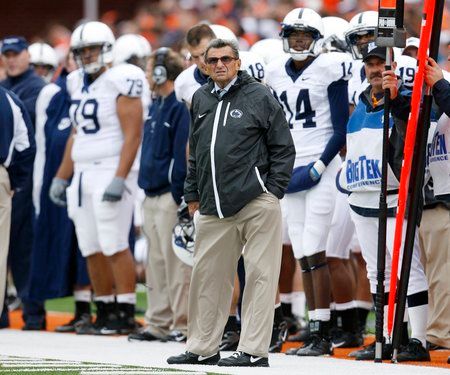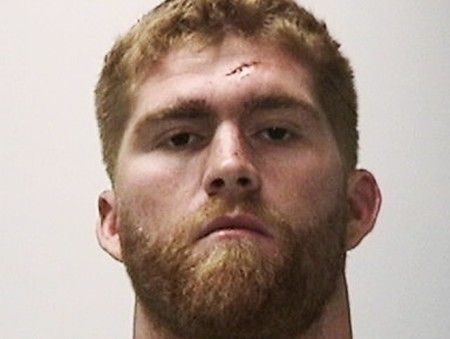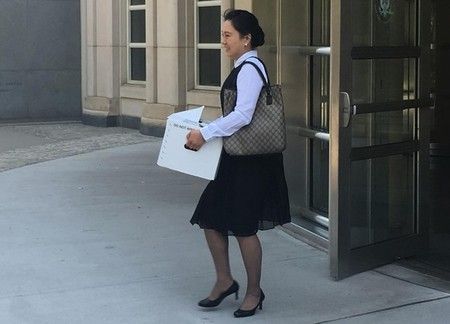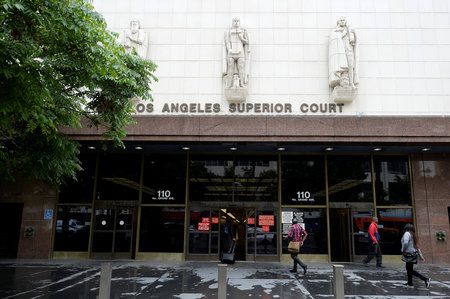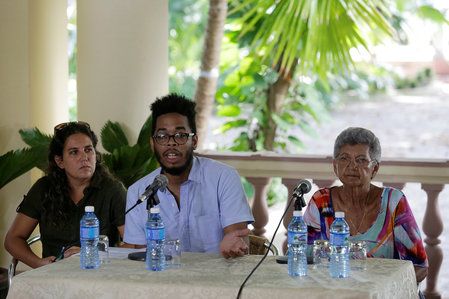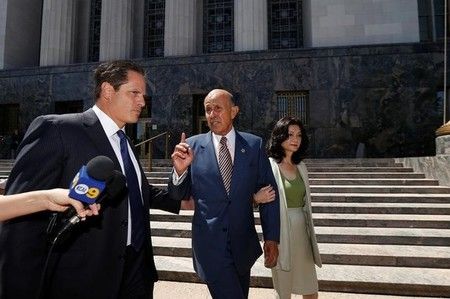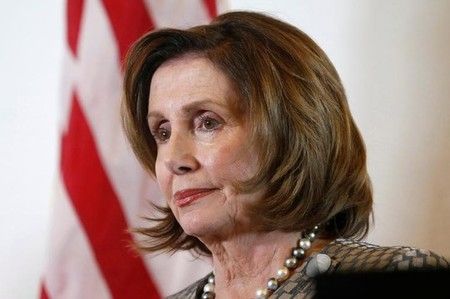Advertisement
Mexico to extradite drug boss Guzman to U.S., won’t face death penalty
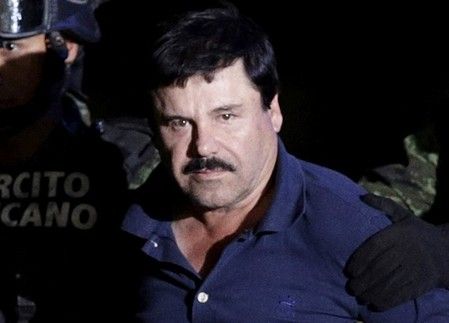
By Luis Rojas and Gabriel Stargardter
MEXICO CITY (Reuters) – Mexico approved the extradition of drug lord Joaquin “El Chapo” Guzman to the United States on Friday after receiving guarantees he would not face the death penalty, and the kinkgpin’s lawyers vowed to block the move.
Juan Pablo Badillo, one of Guzman’s lawyers, told Reuters he would file “many” legal challenges in the coming days, which could delay the drug lord’s eventual extradition for weeks.
Guzman, head of the Sinaloa drug cartel, was the world’s most wanted drug kingpin until his capture in January, six months after he broke out of a high-security penitentiary in central Mexico through a mile-long tunnel burrowed right up into his cell.
Mexico’s foreign ministry said he would face charges including drug trafficking, money laundering and murder in U.S. federal courts in California and Texas. The ministry said it was given “sufficient guarantees” by the U.S. government that Guzman would not be executed. It was not immediately clear where Guzman would be sent in the United States.
A U.S. Justice Department official confirmed that the United States had agreed not to seek the death penalty, but declined to discuss any further details about the case or what the department will do pending a Guzman appeal.
Asked whether he would file legal challenges on behalf of Guzman, Badillo said: “Of course. Five, 10, whatever is necessary.”
Guzman’s escape last year was a major embarrassment to President Enrique Pena Nieto, who entered office amid a bloody war between the government and drug cartels launched by his predecessor.
Pena Nieto dialed back cooperation with the United States after taking office in 2013, but soon after Guzman’s recapture in January he said he had taken steps to ensure the kingpin would be extradited as soon as possible.
Mike Vigil, a former U.S. Drug Enforcement Administration chief of international operations, said he did not think the United States needed to do much to convince Mexico to extradite Guzman, since the longer he stayed in the country, the more opportunities the drug lord would have to stage another potentially embarrassing jailbreak.
Vigil said Mexican officials told him that it is currently costing the government $100,000 per week to keep the kingpin in prison.
“Mexico knows they have no penitentiary that can hold him given their limited resources and his power to intimidate,” said Vigil, who now works as an independent consultant. “I believe he will definitely die in a U.S. prison cell.”
Earlier this month, Guzman was moved from a jail in central Mexico to a prison in Ciudad Juarez on the U.S. border, seen as a step closer to extradition.
Mexican authorities say they tracked Guzman down after he sought to make a movie about his life and met with Mexican actress Kate del Castillo and Oscar-winning actor Sean Penn, who published an interview with the drug boss in Rolling Stone.
In a plot worthy of a Hollywood blockbuster, the trio met at a jungle hideout, unwittingly monitored by Mexican security forces. Guzman was finally apprehended around 3 months later as he sought to flee through drains from a safehouse in his native state of Sinaloa along with his chief hitman.
Guzman, whose nickname means “Shorty”, first escaped prison in 2001 by bribing prison officials, and went on to dominate the world of Mexican drug trafficking.
He was recaptured by Pena Nieto’s government in 2014 but escaped in July by capitalizing on the drug-tunneling skills his cartel honed on the U.S. border.
A mile-long tunnel equipped with electric lights, rails and a motorbike came out directly into the shower of his prison cell and he simply slipped away.
Dozens of people were arrested over the jailbreak, though details of who Guzman bribed and how his accomplices knew exactly where to dig into the prison remain scarce.
With Chapo back behind bars, his more discreet partner, Ismael “El Mayo” Zambada, who jointly heads the powerful Sinaloa cartel, is the last major Mexican capo standing.
(Additional reporting buy Julia Harte in Washington,; Writing by Michael O’Boyle and Simon Gardner; Editing by Tom Brown and Andrew Hay)








